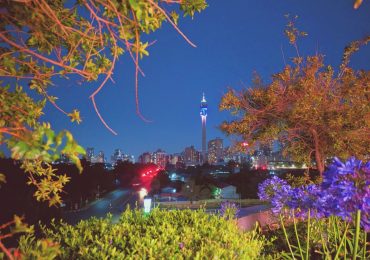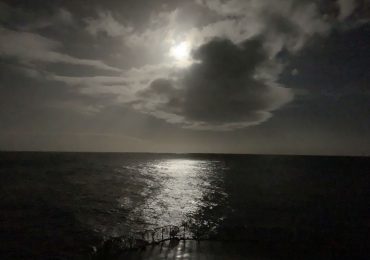The regional winners of the 2019 Commonwealth Short Story Prize have been announced: five stories that ‘tackle big issues’ with ‘a truly global cast of characters’.
Now in its eighth year, the Commonwealth Short Story Prize is awarded annually to ‘the best piece of unpublished short fiction from the Commonwealth’. It is the only prize in the world where entries can be submitted in Bengali, Chinese, English, Greek, Malay, Portuguese, Samoan, Swahili, Tamil and Turkish.
Five winning stories from each of the five Commonwealth regions—Africa, Asia, Canada and Europe, the Caribbean and the Pacific—have been selected, all written by women, from a shortlist of twenty-one, after 5,081 entries were submitted from fifty Commonwealth countries.
Zambian writer Mbozi Haimbe is the winner of the Africa Region, for her short story ‘Madam’s Sister’.
‘I am absolutely thrilled to have been selected as the regional winner, and feel privileged to contribute to Africa’s literary landscape,’ Haimbe says. ‘Although a social worker by profession, I have always considered myself a writer. Winning the regional prize validates my aspiration. I thank the judges, and give acknowledgement to Zambia, which remains deeply influential to my writing.’
Chair of judges Caryl Phillips says:
The regional winners of the Commonwealth Short Story Prize explore a remarkably diverse range of subject-matter, including stories about war, love, abuse and neglect. What unites the stories is a common thread of narrative excellence and dramatic intensity. The voices of a truly global cast of characters enable us to engage with, and recognise, universal emotions of pain and loss.
2019 Commonwealth Short Story Prize regional winners
- In Africa, Mbozi Haimbe, who was born and raised in Lusaka, Zambia, and now lives in Norfolk, UK, wins for ‘Madam’s Sister’, in which the arrival of a sister from London causes upheaval in a Zambian household.
- In Asia, the Malaysian freelance writer, language and creative writing teacher Saras Manickam wins for her story ‘My Mother Pattu’. The story explores a mother’s violent jealousy and envy towards her daughter, who finds that no one can protect her from the abuse except herself.
- In Canada and Europe, the Cypriot writer Constantia Soteriou wins for her story ‘Death Customs’, about mothers and wives in Cyprus who were led to believe that their loved ones were missing after the 1974 war, when the state had clear evidence of their deaths. The story was translated by Nicosia-based translator and cultural critic Lina Protopapa.
- In the Caribbean, Alexia Tolas, born and raised in The Bahamas, wins for ‘Granma’s Porch’, which has her protagonist navigating the delicate border between adolescence and adulthood, guided by the past traumas of her friends and family and her troubled first love.
- In the Pacific, the writer, artist and editor Harley Hern wins for ‘Screaming’, in which a visit to a New Zealand care home forces two friends to confront deceit, identity and endings.
The five regional winners’ stories will be published online by the literary magazine Granta in the run-up to the announcement of the overall winner. Following publication by Granta, the winning stories will also be published in the online magazine of Commonwealth Writers, adda.
The overall winner will be announced in Québec City in Canada on 9 July 2019. Regional winners receive £2,500 (about R45 700) and the overall winner receives £5,000.
Vijay Krishnarayan, Director-General of the Commonwealth Foundation says:
This year’s regional winners demonstrate the richness of new writing and it is striking that they are all women. In a world where men still dominate the literary landscape you can see the value of the Commonwealth Short Story Prize in bringing less heard experiences to the fore. The stories touch on the gamut of human emotions and speak to each of us. Not only is this the world’s most global prize, it’s the world’s most relevant prize.
Luke Neima, Digital Director at Granta, says:
This year’s Commonwealth Short Story Prize winning stories showcase the short story in a range of guises, innovations of form that stretch but never exhaust the potential of the short story to address the regional and universal questions this gifted crop of authors seeks to address. These outstanding stories capture the breadth of talent writing today across the Commonwealth.
Caryl Phillips is joined on the panel by a judge from each of the five Commonwealth regions: Ugandan novelist and short story writer Jennifer Nansubuga Makumbi, Pakistani writer and journalist Mohammed Hanif, Barbados’s Karen Lord, British short story writer Chris Power, and New Zealander poet, playwright, fiction writer and musician Courtney Sina Meredith.
More about the 2019 Commonwealth Short Story Prize regional winners
Mbozi Haimbe was born and raised in Lusaka, Zambia. She completed an MSt in Creative Writing at the University of Cambridge in 2018, and is currently working on a collection of African inspired short stories. Mbozi lives in Norfolk, United Kingdom with her family.
Saras Manickam is a freelance writer, language and creative writing teacher whose short stories have been published in Malaysian anthologies. She won the DK Dutt Memorial Award for Literary Excellence in 2017. She hopes to bring out a collection of short stories by the end of the year.
Constantia Soteriou was born in Nicosia, Cyprus in 1975. Her first novel, Aishe Goes on Vacation (Patakis, 2015), received the Athens Prize for Literature award. Her second book, Voices Made of Soil (Patakis, 2017), was included on the shortlist for the Cyprus Literature Awards. She has written plays for independent stages and for the Cyprus Theatre Organisation.
Lina Protopapa lives in Nicosia, Cyprus, where she works as a translator and cultural critic.
Alexia Tolas was born and raised in The Bahamas. Her writing explores the intricacies of small-island life, particularly from the female perspective. She draws heavily on local folktales and mythologies in order to convey realities silenced by tradition and trauma. She is a graduate of the former College of The Bahamas and currently teaches literature.
Harley Hern is a writer, artist and editor whose fiction, essays and reviews have appeared in various anthologies and journals. She has a Master of Creative Writing (Auckland University), is administrator for the Academy of NZ Literature (Te Whare Mātātui Aotearoa), senior editor of Geometry journal and for two years was administrator for NZ National Poetry Day. She lives on a rural block where she chainsaws firewood, fixes fences, paints bright art and trains horses.





